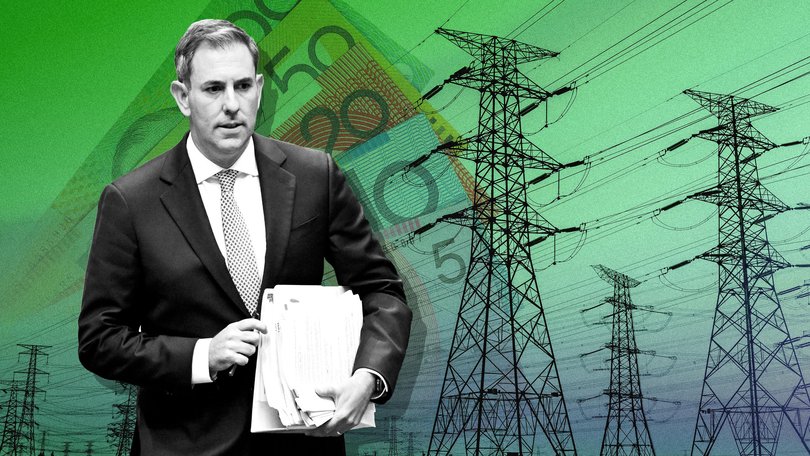Why skyrocketing electricity prices are a political problem for Albanese and Labor
Skyrocketing electricity prices are coming back to haunt the Albanese government six months after they neutralised it as an election issue.

Soaring electricity prices remain Labor’s biggest political liability following the Albanese government’s move to extend the $300 annual rebates in the pre-election Budget until the end of 2025.
As electricity prices continue to rise, the Government is coming under increasing pressure to extend the subsidies again. Any hip pocket relief would be gladly received by voters, but Labor would risk looking like it was taking a Band Aid solution to the complex problem of inflation.
Electricity prices have become a choice for Labor - between instant quarterly power bill relief and responsible economic management.
Sign up to The Nightly's newsletters.
Get the first look at the digital newspaper, curated daily stories and breaking headlines delivered to your inbox.
By continuing you agree to our Terms and Privacy Policy.With the end of the year just seven weeks away, Prime Minister Anthony Albanese is coy about whether they’ll be extended again with power prices surging by a third during the past year, as several states ended their cost-of-living subsidies.
“Well, the rebates that are in place are the ones that are in place. And we will continue to focus though each and every day on things that Australians are concerned about,” he said on Monday.
First announced in the May 2024 Budget, the federal electricity rebate policy was only meant to last 12 months and be available for every household and business in the 2024-25 financial year.
Treasurer Jim Chalmers’s solution to problem headline inflation was only meant to be temporary. But in the March Budget, they were extended by another six months until the end of 2025, just in time for the May election at a cost of $1.8 billion.
By election day, Labor had managed to neutralise the problem of high inflation and soaring power bills with an artificial manipulation of power bills.
Electricity prices had fallen by 5.9 per cent over the year to May and Labor went on to be re-elected in a landslide just two weeks before the Reserve Bank of Australia cut interest rates again.
Labor’s 2022 promise to reduce power bills by $275 a year, on average, was no longer a political time bomb.
Six months on from the election, soaring electricity prices have re-emerged as a political problem for Labor, even with the Opposition in disarray.
Electricity prices have surged by more than a third - or 33.9 per cent - in the year to September, demonstrating that a major component of the cost-of-living crisis can only be temporarily managed with rebates.
Meanwhile headline inflation climbed to 3.2 per cent, or above the RBA’s 2 to 3 per cent target, with volatile items like electricity costs a major factor behind the worst consumer price index reading in more than a year.
RBA Governor Michele Bullock and her monetary policy board blamed higher electricity prices for its Melbourne Cup Day decision this month to leave the cash rate on hold at 3.6 per cent.
“Headline inflation rose sharply to 3.2 per cent over the year in the September quarter, a large part of which was expected given the cessation of electricity rebates in a number of states,” the RBA said on November 4.
While the Federal rebate is still running until the end of the year, Queensland’s $1000 rebate was discontinued by the State’s new Liberal National Party government.
The end date was brought forward to June 30, undoing a policy the State’s previous Labor government had intended to have run over 2025-26.
Western Australia’s $400 electricity credit ended on July 1.
Dr Chalmers used a Halloween day media conference to signal he was clearly spooked, politically at least, by higher electricity prices, suggesting the rebates were only temporary.
“Those energy rebates won’t be in the Budget forever, at some point they will taper away, we’ve made it clear on multiple occasions now and for some time since the Budget that we will review those energy rebates from Budget update to budget update, that remains the case,” he told reporters in Brisbane.
Government spending as a proportion of GDP is at the highest level since 1986, outside of COVID, and Treasury is forecasting a decade of Budget deficits.
To start addressing that means Labor has to make a tough choice that will involve pain for ordinary Australians.
But by extending the electricity rebates again, Labor will be putting politics ahead of responsible economic management and looking like it has become addicted to short-term solutions that keep getting extended.

